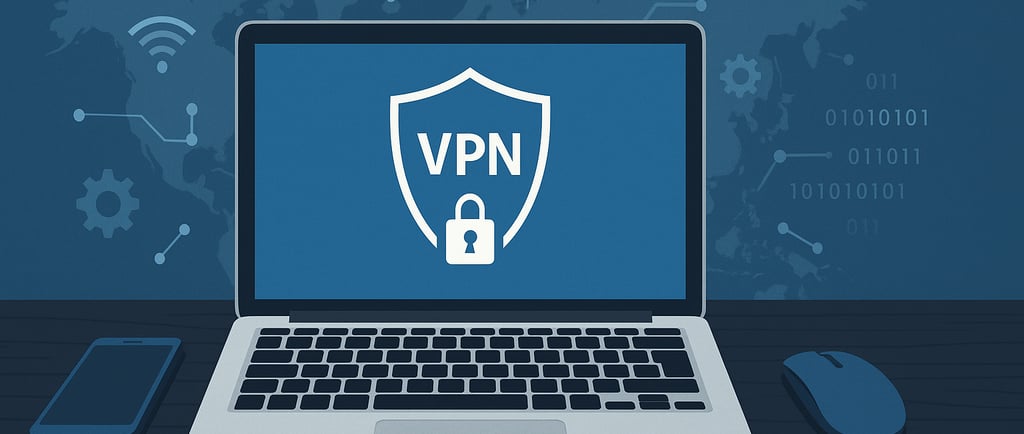How VPNs Protect Your Data Online?
VPN
8/22/20253 min read


In today’s digital-first world, privacy has become one of the most valuable commodities. Every time you open an app, visit a website, or connect to public Wi-Fi, you leave behind digital breadcrumbs. These traces of information can be tracked, sold, and sometimes even exploited. One of the most effective tools to protect yourself in this environment is a Virtual Private Network (VPN). But how exactly does a VPN safeguard your privacy, and why should you consider using one? Let’s break it down.
What Happens Without a VPN?
When you connect to the internet normally, your activity flows through your Internet Service Provider (ISP). This means your ISP can see:
The websites you visit
The time you spend online
The apps you use
Sometimes even the data you exchange
In many countries, ISPs are legally allowed to sell anonymized user data to advertisers. On top of that, cybercriminals lurking on unsecured networks can intercept unencrypted traffic, putting your personal information at risk.
In short: without protection, your online life is far from private.
What a VPN Actually Does
A VPN creates an encrypted tunnel between your device and the internet. Here’s what that means in practice:
Encryption of data – Any information sent or received is scrambled into unreadable code. Even if hackers intercept it, they won’t be able to decipher it.
Hiding your IP address – Normally, websites and trackers can see your unique IP address, which reveals your approximate location. A VPN masks this by rerouting your traffic through secure servers, often located in different countries.
Secure connection on public Wi-Fi – Cafés, airports, and hotels often provide open Wi-Fi, which is notorious for being unsafe. With a VPN, your connection is protected from anyone trying to spy on your browsing session.
Key Ways VPNs Protect Your Privacy
1. Preventing Tracking by Advertisers
Ad networks and data brokers thrive on tracking your every click. By masking your IP address and encrypting your data, VPNs make it significantly harder for companies to build detailed profiles of your online behavior.
2. Shielding Against Hackers
Whether it’s a criminal trying to steal passwords on public Wi-Fi or someone injecting malware into your data stream, VPN encryption ensures your information remains out of reach.
3. Stopping ISP Snooping
In many regions, ISPs are allowed to monitor your browsing history. With a VPN, your ISP can only see that you are connected to a VPN server—not what you are doing online.
4. Avoiding Location-Based Restrictions
Privacy isn’t only about hiding—it’s also about freedom. VPNs allow you to bypass censorship or geo-blocks, so your access to information isn’t dictated by your location.
When Should You Use a VPN?
On public Wi-Fi: Airports, hotels, and cafés are hotspots for data theft.
While traveling: Protect your banking apps, emails, and social accounts when abroad.
For work: Remote workers handling sensitive files need the extra security.
At home: Even on your private Wi-Fi, a VPN shields your browsing from your ISP and advertisers.
Choosing the Right VPN
Not all VPNs are created equal. Some free VPNs log your data, defeating the entire purpose of privacy. When selecting a provider, look for:
A strict no-logs policy
Strong encryption standards (AES-256 or higher)
Servers in multiple countries
A kill switch feature (disconnects you from the internet if the VPN drops)
Cross-platform apps for phones, laptops, and tablets
The Bottom Line
Your online privacy is constantly under threat—from ISPs, advertisers, cybercriminals, and even government surveillance. A VPN acts like a shield, ensuring your digital footprint remains your own. While it isn’t a magic bullet that makes you 100% anonymous, it is one of the most powerful and accessible tools available for protecting your online life.
By making VPN use part of your daily routine, you take back control of your digital privacy—something that is becoming more essential with each passing year.